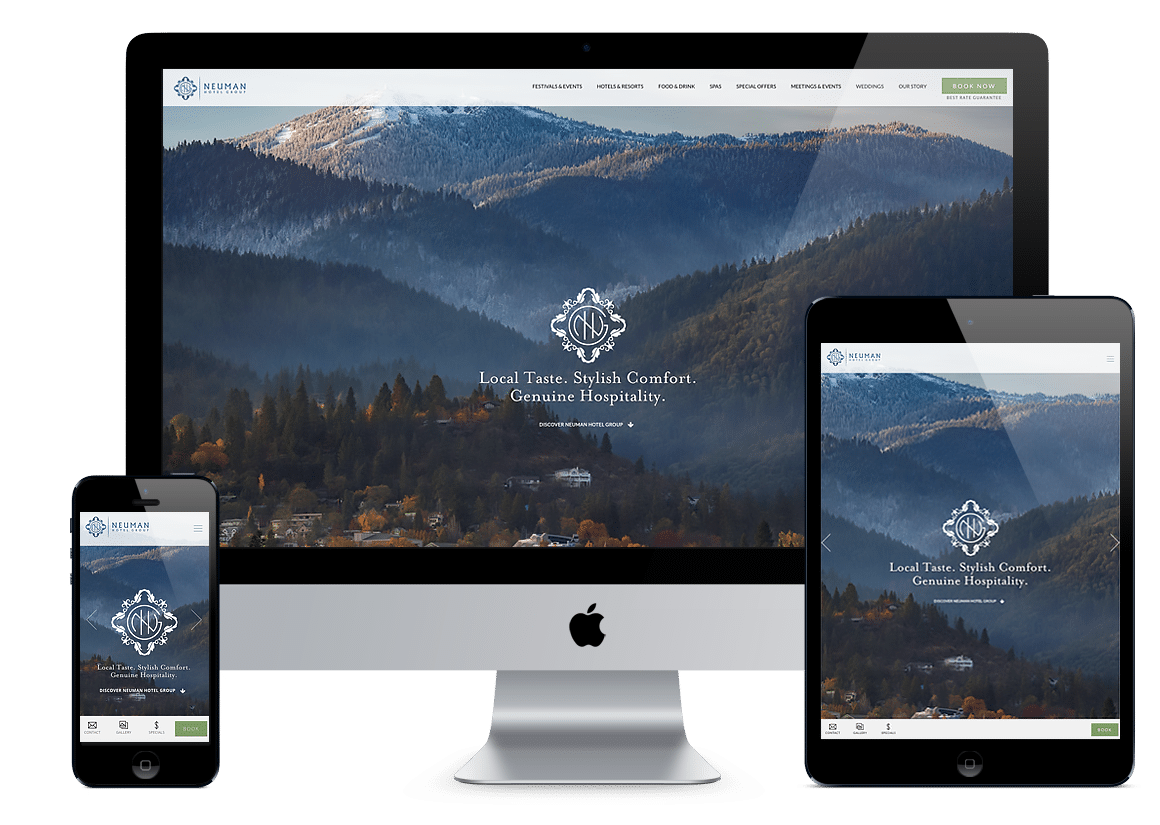Your Gateway to Enhanced Tax Benefits: ERTC and Hospitality

“Neuman Hotel Group – Kelley Connect” from kelleyconnect.com and used with no modifications.
Claim your ERTC Rebate Now
Imagine this: a bustling hotel lobby, guests checking in, a line of taxis waiting outside. Hospitality is all about creating experiences, but behind those memorable stays and delightful dinners lies a world of financial decisions. That’s where the Employee Retention Tax Credit (ERTC) comes in, offering a lifeline to businesses across the hospitality spectrum.
But let’s cut to the chase: what exactly is ERTC, and how can it benefit your hospitality business? ERTC is a tax credit designed for employers to keep staff on payroll during challenging times. It’s not a loan; it’s better. It’s money in your pocket for doing what you do best—serving your guests.
-
ERTC is a refundable tax credit, not a loan.
-
It’s available for wages paid up to a certain cap.
-
Hospitality services can benefit significantly from ERTC.
-
Understanding eligibility and calculation is crucial.
-
ERTC can be a game-changer for your cash flow.
Key Takeaways: Hospitality’s Advantage with ERTC
Here’s the bottom line: ERTC can be a game-changer for the hospitality industry. It’s designed to support businesses that kept employees on during tough times. If you’re in hospitality, you know about tough times. But you also know about resilience and the art of the comeback. ERTC is here to help with that.
-
ERTC supports businesses that have faced disruptions.
-
It includes a wide range of hospitality services.
-
Understanding the ins and outs can boost your cash flow.
-
Compliance is key to avoid any pitfalls.
-
Working with a tax professional can maximize your benefits.
Comprehensive Guide to ERTC Eligibility in Hospitality

Now, let’s talk eligibility. Not every business can claim ERTC, and there are some hoops to jump through. But don’t worry, I’ll walk you through them.
Criteria for Hospitality Services
First up, you need to have been in business after February 15, 2020. That’s when the world turned upside down, and the government stepped in to help. Besides that, you should have faced either a full or partial suspension of operations due to government orders or a significant decline in gross receipts. It’s not just about being open; it’s about how open you were.
Assessing Financial Impact Thresholds
Next, we’ll look at your books. Did your gross receipts take a nosedive? There’s a specific threshold to meet, and it varies by quarter. If you’ve seen a drop of more than 50% in any quarter of 2020 compared to the same quarter in 2019, you’re likely in the running for ERTC. For 2021, that threshold eases up a bit.
Documentation and Compliance for ERTC Claims
Now, the paperwork. You’ll need to show proof of your eligibility, and this is where being detail-oriented pays off. Keep those financial records, government orders, and payroll reports handy. Remember, the IRS loves documentation.
-
Keep detailed financial records.
-
Maintain payroll reports and employee data.
-
Document any government orders affecting your operations.
Calculating Your ERTC: Hospitality Sector Step-by-Step

“Commercial Property Management – Kelley Connect” from kelleyconnect.com and used with no modifications.
Calculating ERTC can feel like making the perfect soufflé—it’s all about precision. But don’t worry, I’ve got the recipe for success.
Determining Qualified Wages
Qualified wages are the foundation of your ERTC claim. This includes salaries, wages, and certain health plan expenses. But there’s a cap—$10,000 per employee for all quarters. So, if you’ve paid more, kudos to you, but ERTC won’t cover it.
-
Qualified wages include salaries and health expenses.
-
There’s a $10,000 cap per employee for all quarters.
-
Only wages paid after March 12, 2020, and before January 1, 2021, qualify.
Inclusion of Tipped Employees in ERTC Calculations
Here’s a tip—don’t forget your tipped employees. Their tips may count as qualified wages, but there are rules. Tips need to be more than $20 in a month, and you’ve got to have reported them to the IRS.
Example: If an employee earned $500 in tips in June and you reported it, that $500 goes towards your ERTC calculation.
Maximizing ERTC with Health Plan Expenses
Health plan expenses can also boost your ERTC claim. Think of it as a thank you for keeping your staff healthy. This includes employer-paid health, dental, and vision insurance. It’s a win-win for you and your team.
Template: Add the total health plan expenses paid during eligible quarters to the qualified wages for each employee to maximize your ERTC claim.
Implementation of ERTC in Various Hospitality Services
ERTC isn’t one-size-fits-all. It stretches across the hospitality industry, from the corner café to the downtown hotel. Let’s look at how it fits into different services.
Application in Food and Beverage Establishments
Restaurants and bars, listen up. ERTC is like the secret sauce to your financial stability. Whether you had to switch to takeout only or limit your dining room capacity, ERTC has your back.
-
ERTC applies to both dine-in and takeout services.
-
It helps offset the costs of reduced capacity and closures.
ERTC Utilization in Lodging and Accommodations
Hotels and B&Bs, you’re up. Occupancy rates might have plummeted, but ERTC can help cushion the fall. It’s here to help you keep the lights on and the doors open, even when guest numbers are down.
-
ERTC supports hotels through low occupancy periods.
-
It helps maintain staffing levels for when guests return.
Recreational Services and ERTC Opportunities
For the recreational spots—golf courses, amusement parks, and the like—ERTC can be your lifeline. It’s about keeping the fun going, even when times are tough.
Example: A local amusement park had to limit visitors to 50% capacity. They used ERTC to offset the wages of the staff they retained to maintain operations.
Navigating ERTC with Seasonal Fluctuations in Hospitality
Seasonality can be as unpredictable as the weather. But with ERTC, you can navigate these fluctuations more smoothly.
Addressing Seasonality in Wage Reports
When reporting wages for ERTC, remember to account for your high and low seasons. This will ensure you’re maximizing your claim without overstating your eligibility.
Strategies for Claiming ERTC During Off-Peak Periods
During off-peak times, ERTC can be a real lifesaver. It can help you retain staff so you’re ready to ramp up when the busy season hits again.
So, there you have it—a deep dive into the world of ERTC for hospitality services. Stay tuned for the next installment, where we’ll cover more ground on this essential topic. And remember, the goal is not just to survive, but to thrive. ERTC can help you do just that.
Case Studies: Hospitality Businesses and ERTC Success
Real stories speak volumes. Let’s look at a couple of hospitality businesses that turned their fortunes around with ERTC.
Surviving the Pandemic: A Restaurant’s Tale
Consider a family-owned restaurant in the heart of the city. When the pandemic hit, they were forced to switch to takeout only. Revenue plummeted. But with ERTC, they managed to keep their entire staff employed. They even expanded their delivery options, and now they’re a neighborhood favorite for takeout.
-
The restaurant maintained full staffing despite reduced operations.
-
ERTC helped them explore new service models like expanded delivery.
Rejuvenation of a Boutique Hotel through ERTC Benefits
Next up, a boutique hotel that saw a drastic drop in guests. They used ERTC to retain their core staff, which allowed them to offer personalized services that attracted local staycationers. Now, they’re known for their unique local experiences and have a loyal customer base.
Example: The hotel created local experience packages, which became a hit and helped them stand out in the market.
Collaboration with Tax Professionals for ERTC
ERTC might seem daunting, but you don’t have to go it alone. Teaming up with a tax professional can make all the difference.
Selecting the Right Tax Advisor for Your Hospitality Business
Choose a tax advisor who understands the hospitality industry. They’ll know the ins and outs of ERTC and how it applies to your specific business.
Coordinating with Payroll Providers on ERTC Claims
Working closely with your payroll provider is key. They have the data you need and can help ensure your claim is accurate.
-
Choose a tax advisor with hospitality experience.
-
Work with your payroll provider to access wage data.
-
Ensure your ERTC claim is precise and compliant.
Facing Audits and Appeals in ERTC Cases
No one likes audits, but they’re a reality. Being prepared is your best defense.
Preparing Documentation and Records for Scrutiny
Keep your records in order. If you’re audited, you’ll need to show detailed evidence of your ERTC eligibility and calculations.
Handling IRS Queries and Examination
If the IRS comes knocking, stay calm. With your documentation in order and a good tax advisor by your side, you’ll be able to navigate the process.
-
Keep detailed records of all ERTC-related documents.
-
Work with a tax professional to handle IRS queries.
Post-Pandemic Hospitality and Long-Term ERTC Planning
As we move beyond the pandemic, it’s time to think long-term. How can ERTC continue to support your business?
Forecasting Future Tax Credit Scenarios
Stay informed about changes to tax laws and credits. Planning ahead can help you take advantage of future benefits.
Sustainable Business Practices with ERTC Incentives
Use ERTC to invest in sustainable practices. It’s good for the planet and can be good for your bottom line too.
FAQs: Demystifying ERTC for the Hospitality Industry
Let’s tackle some common questions to clear up any confusion about ERTC.
What Constitutes Qualified Wages in Hospitality for ERTC?
Qualified wages are wages you’ve paid to employees during eligible periods, including certain health plan expenses. Remember, there’s a $10,000 cap per employee.
Can Tips Be Included When Calculating the ERTC?
Yes, tips can be included, but they must be more than $20 per month and reported to the IRS.
How Do I Handle ERTC for Seasonal Hospitality Workers?
Seasonal workers can be tricky, but they’re included in ERTC calculations. Just make sure to document their wages accurately.
What Are the Risks of ERTC Non-Compliance in Hospitality?
Non-compliance can lead to denied claims or even penalties. That’s why accurate record-keeping and working with a tax professional are crucial.
-
Ensure accurate wage reporting for seasonal workers.
-
Non-compliance can result in penalties.
Can ERTC Benefits Be Forecasted for Future Tax Planning?
While you can’t predict the future, staying informed about tax credit updates can help you plan for potential benefits.
There you have it—a comprehensive look at ERTC for the hospitality industry. Remember, it’s about more than just surviving; it’s about setting your business up for success. With ERTC, you’re not just weathering the storm; you’re preparing to sail ahead to brighter days.
